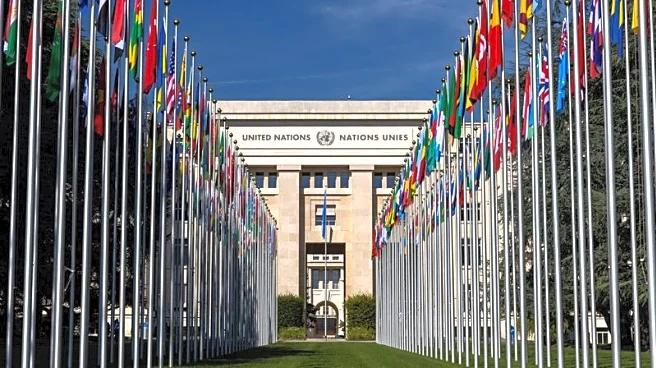Rapid Read • 7 min read
The ongoing ceasefire between Cambodia and Thailand has temporarily halted armed conflict, but the economic repercussions for Cambodia remain significant. The border dispute is projected to reduce Cambodia's GDP by over 3% in the next year, with tourism, a major economic sector, experiencing a 20% drop in visitor numbers. The conflict has also led to the return of 750,000 Cambodian workers from Thailand, reducing remittances by an estimated $375 million. The EuroCham Cambodia has highlighted the severe impact on businesses, particularly in tourism, logistics, agriculture, and manufacturing, as cross-border trade faces disruptions and increased costs.
AD
The economic impact of the border dispute underscores the vulnerability of Cambodia's economy to regional conflicts. The reduction in tourism and remittances could have long-term effects on economic growth and stability. The situation highlights the need for Cambodia to diversify its economic activities and strengthen its resilience against external shocks. The crisis also presents an opportunity for Cambodia to reform its economic policies, improve infrastructure, and enhance trade routes to mitigate future risks and foster sustainable growth.
Cambodia is likely to focus on diversifying its economy and strengthening its trade infrastructure to reduce dependency on neighboring countries. The government and business community may implement strategies to enhance operational resilience, such as investing in renewable energy and improving logistics processes. These efforts could position Cambodia for faster economic recovery and growth in the coming years, despite the current challenges posed by the border dispute.
The border conflict has revealed the need for Cambodia to build economic independence and resilience. By investing in infrastructure, embracing innovation, and accelerating reforms, Cambodia can transform the lessons learned from this crisis into long-term advantages. The focus on renewable energy and agri-food processing could enhance competitiveness and attract sustainable investment, positioning Cambodia as a forward-looking manufacturing hub in the region.
AD
More Stories You Might Enjoy












